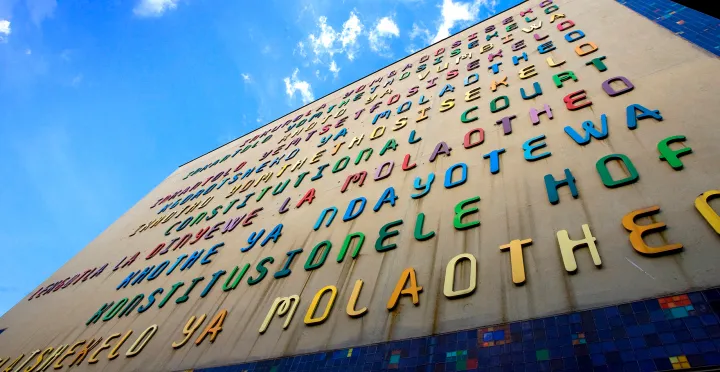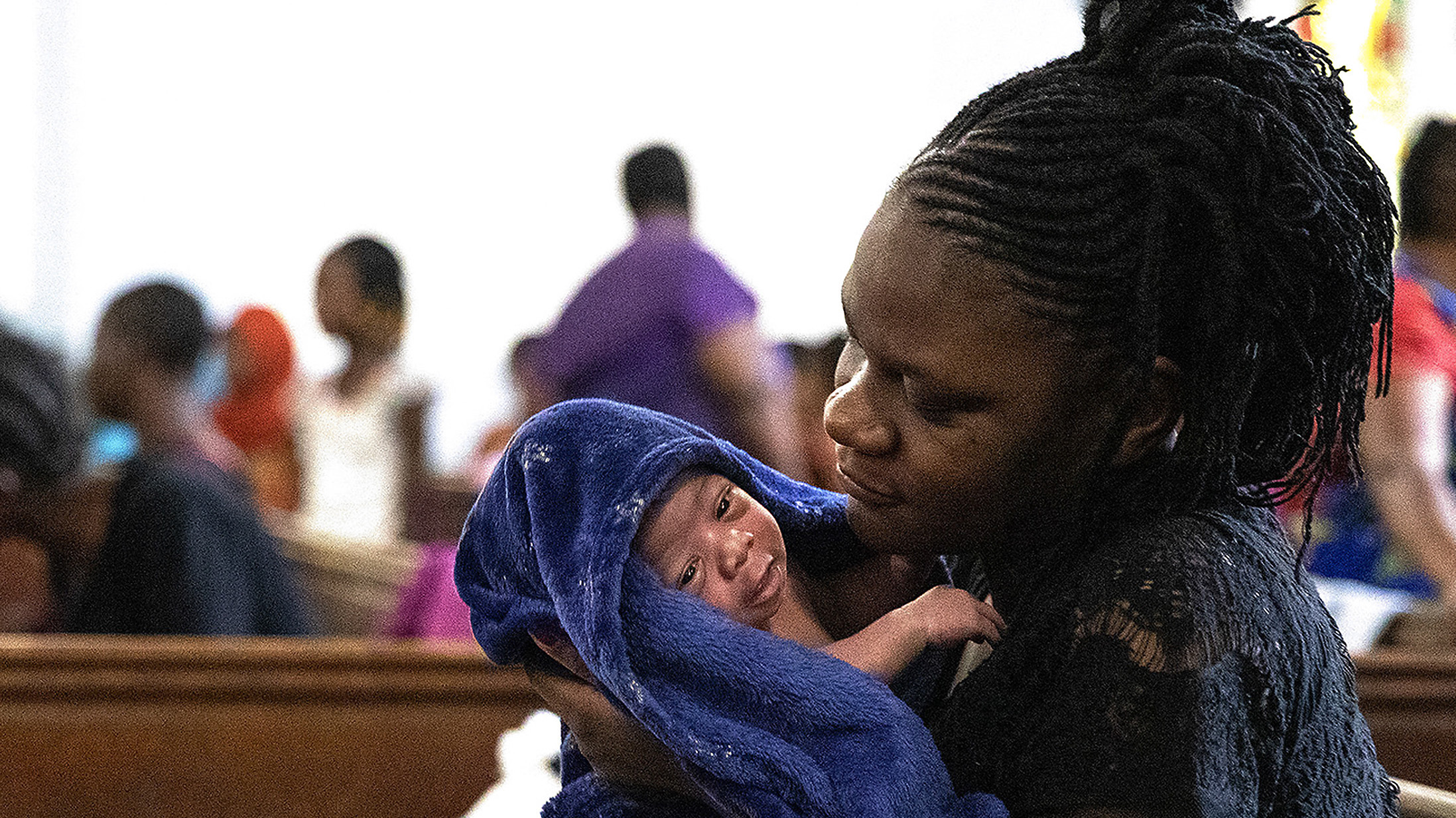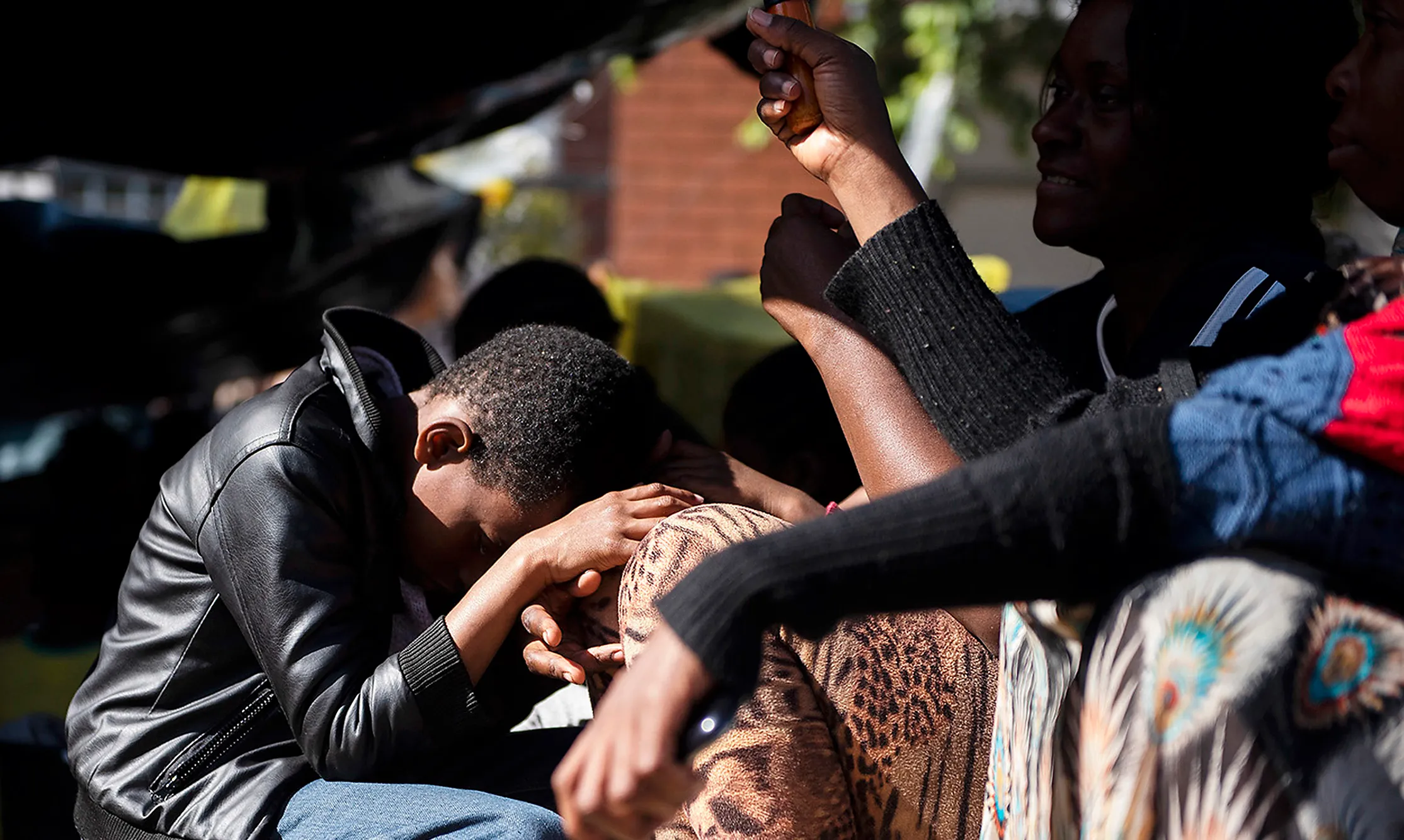HEALTH AND HUMAN RIGHTS OP-ED
Respected constitutional lawyers speak out — ‘human right to healthcare transcends national borders’

The current legislative and policy frameworks for regulating non-nationals’ access to healthcare services are a patchwork of provisions that are not well aligned with the human right to health in the Constitution and international human rights law. A coordinated and human rights-informed policy and legislative framework are urgently required to give effect to the right of non-nationals to health care services.
The Constitution confers the right on “everyone” to have access to health care services, including reproductive health care. This right accrues to everyone within South Africa’s borders and “cannot be construed as referring to citizens”. Parliament has left the power to the Minister of Health and healthcare institutions to adopt policies prescribing patient classification and fee conditions for healthcare services.
However, the prevailing laws and policies provide contradictory guidance to medical staff and often result in non-nationals facing unlawful barriers to accessing health care services.
The recent World Health Organization Report on the Health of Refugees and Migrants has called for the prioritisation of the health needs of non-nationals as a global human right to health imperative. Viewing healthcare as a universal right requires South Africa’s current healthcare laws and policies to be harmonised with fundamental human rights standards that are refugee- and migrant-sensitive and inclusive. The contours of such an approach are sketched in this article.

Discrimination against non-nationals in the context of health care services could thus potentially amount to unfair discrimination, according to the authors. (Photo: EPA-EFE / NIC BOTHMA)
Constitutional rights and international human rights law
To fulfil the constitutional right of everyone to access healthcare services, the State must take “reasonable legislative and other measures, within its available resources, to achieve the progressive realisation”. The Constitution also guarantees that “no one may be deprived of emergency medical treatment”.
In addition, “all children” have a right to “basic health care services” and prisoners and other persons deprived of their liberty have the “right to medical treatment”.
The right to health provisions must also be read together with the right to equality and non-discrimination in section 9 of the Constitution. Equality is defined in the Constitution to include “the full and equal enjoyment of all rights and freedoms”.
The Constitutional Court has recognised citizenship as a ground of discrimination as non-nationals are a “vulnerable group of people” and “discrimination against them will often impair their dignity or their rights in a serious manner.” Discrimination against non-nationals in the context of health care services could thus potentially amount to unfair discrimination thereby infringing section 9 of the Constitution read with legislation such as the Promotion of Equality and Prevention of Unfair Discrimination Act 4 of 2000.
It is also important to interpret constitutional rights in the context of South Africa’s obligations under international human rights law.
For example, the International Covenant on Economic, Social and Cultural Rights recognises the right of “everyone” to enjoy the highest attainable standard of physical and mental health. Furthermore, it prohibits any discriminatory access to health care services on the basis of nationality.
In the African context, relevant treaties require South Africa to accept that the fulfilment of the health needs of African refugees and migrants is the shared responsibility of African states.
Legislation and policy
In terms of the Refugees Act, asylum seekers and refugees are entitled to the same human rights as citizens and permanent residents. This would include the right to health care services.
The National Health Act (NHA) stipulates that services for pregnant and breastfeeding women and children under seven must be delivered free of charge, irrespective of nationality and migrant status. The NHA also entitles everyone to access free primary healthcare services, including people with infectious diseases such as HIV and TB.
Beyond primary and basic healthcare services, the NHA empowers the Minister to differentiate between groups of non-nationals to allocate resources for hospital and specialised treatment. Currently, these healthcare services are reserved only for citizens, certain categories of migrants and undocumented migrants from South African Development Community (SADC) countries.
Visit Daily Maverick’s home page for more news, analysis and investigations
The current legislative and policy framework for regulating non-nationals’ access to healthcare services are a patchwork of provisions that are not well aligned with the human right to health in the Constitution and international human rights law. For example, undocumented migrants not from SADC countries are automatically charged the highest rate of facility fees.
The Immigration Act also places a worrying obligation on medical practitioners to determine the legal status of a patient before providing care. This is not aligned with constitutional and international health standards that basic healthcare services, including emergency medical services, must be available to all, irrespective of legal status.
The NGO, Section27, has instituted court proceedings to declare the Gauteng Department of Health’s policies unconstitutional and discriminatory for barring non-national pregnant and lactating women, and children under six from receiving free healthcare services to which they are entitled.

In the African context, relevant treaties require South Africa to accept that the fulfilment of the health needs of African refugees and migrants is the shared responsibility of African states, say the authors. (Photo: Gallo Images / Alet Pretorius)
A comprehensive human rights-based framework needed
It is essential that the State adopt a comprehensive and coordinated legislative and policy framework for regulating access to healthcare services by non-nationals. This framework should give effect to the constitutional obligation of the State to eliminate barriers that prevent the enjoyment of a right. It should also reflect the positive obligation of the State to take steps that will progressively secure and achieve non-nationals’ right to healthcare services. Such a programme should include participation by non-nationals and set clear standards for financing, planning, implementation, monitoring and evaluation.
The State must also look at burden-sharing and fairer resource redistribution between provinces as some regions share a disproportionate burden of addressing the health care needs of non-nationals.
If the State wants to invoke the lack of resources as a justification for restricting non-national’s right to health, they will have to give compelling reasons and evidence. Importantly, they will have to show that the restriction is not excluding vulnerable groups of non-nationals or discriminating unfairly against them.
The state will also have to show that each person’s inherent dignity and worth are respected, irrespective of their legal status. In addition, they will have to show that the unqualified right to emergency medical treatment is not compromised. The State should educate healthcare service providers on the health rights of non-nationals, and clarify procedures for dealing with non-nationals in the different tiers of the healthcare system.
International assistance and co-operation
Seeking international assistance and engaging in cooperation with other States is an important part of South Africa’s international obligations in realising the right of access to health care services for all. Economically developed states have a special responsibility to assist developing states such as South Africa in securing health care as a universal right for non-nationals. International cooperation and burden-sharing across borders and continents are essential for strengthening healthcare systems to address common challenges such as migration and refugee flows.
A coordinated and human rights-informed policy and legislative framework is urgently required to give effect to the right of non-nationals to health careservices. South Africa’s response must affirm that the universal nature of the human right to health care does not begin or end within its borders. DM/MC
Gideon Basson is currently an assistant lecturer and researcher at the H.F. Oppenheimer Chair in Human Rights Law, Department of Public Law, Stellenbosch University, Law Faculty.
Sandra Liebenberg is a distinguished professor, A-rated scholar and current incumbent of the H.F. Oppenheimer Chair in Human Rights Law, Department of Public Law, Stellenbosch University, Law Faculty.





















 Become an Insider
Become an Insider
There is a difference between providing health services in an emergency and when chronic (Soopramoney case) and also medical tourism. e.g when a Zimbabwean injured herself in Zimbabwe and crossed into SA specifically for medical attention.